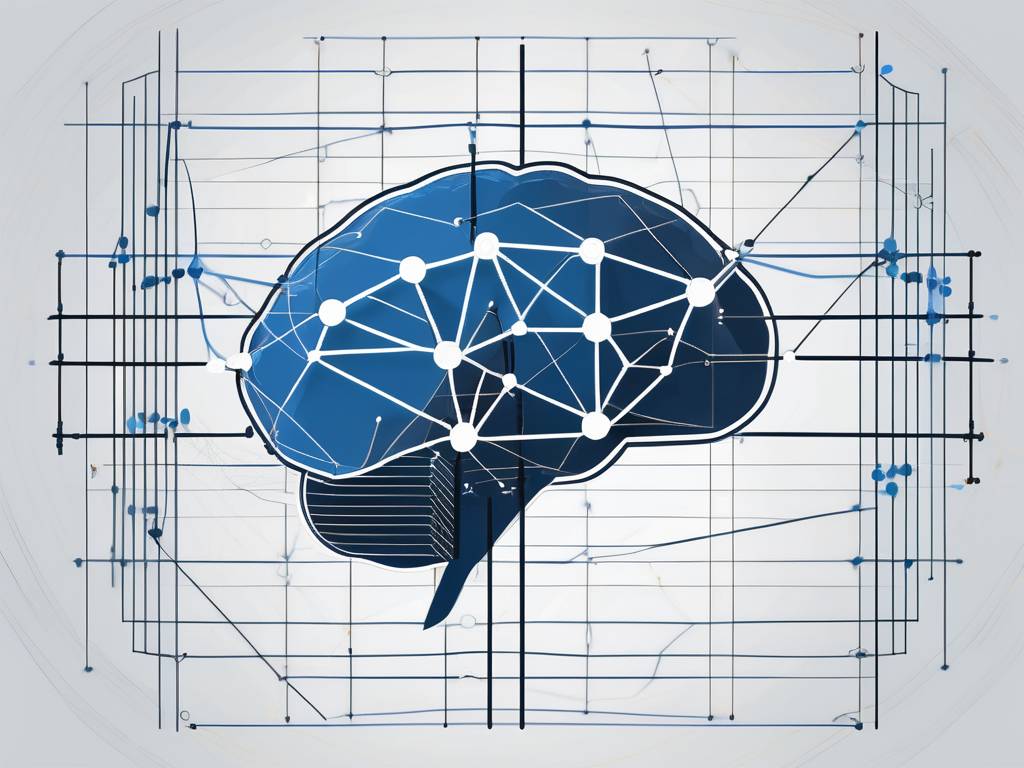Regression: Machine Learning Explained
Regression, in the context of artificial intelligence (AI), is a statistical method used to predict a dependent variable based on the values of independent variables. This method is widely used in machine learning and data mining, where it helps in predicting outcomes and trends. Regression models are a fundamental part of AI, as they enable machines to make predictions that are based on data.
Regression analysis is a powerful statistical tool that has been in use for more than a century. It allows researchers to model relationships between a dependent variable and one or more independent variables. In artificial intelligence, regression models are used to predict a continuous outcome variable (Y) based on one or more predictor variables (X).
Types of Regression
There are several types of regression used in artificial intelligence, each with its own set of assumptions and uses. The choice of regression type depends on the nature of the data and the specific requirements of the analysis.
Some of the most common types of regression used in AI include linear regression, logistic regression, polynomial regression, stepwise regression, ridge regression, lasso regression, and elastic net regression. Each of these types of regression has its own strengths and weaknesses, and the choice of which to use depends on the specific circumstances of the analysis.
Linear Regression
Linear regression is the most basic type of regression and is widely used in AI. It assumes a linear relationship between the dependent and independent variables, which means that a change in an independent variable will result in a proportional change in the dependent variable.
Linear regression is simple to understand and interpret, and it can provide a good baseline for more complex analyses. However, it can be sensitive to outliers and may not be suitable for data that does not meet the assumptions of linearity, normality, and homoscedasticity.
Logistic Regression
Logistic regression is a type of regression used when the dependent variable is binary, meaning it can take only two values, such as 0 and 1. It is used in AI for classification problems, where the goal is to predict a categorical outcome.
Logistic regression estimates the probability that a given input point belongs to a certain category. It is robust to noise and can handle nonlinear effects. However, it requires a large sample size to achieve stable results and may not perform well when predictor variables are highly correlated.
Applications of Regression in AI
Regression analysis is widely used in AI for a variety of applications. These range from predicting future sales for a company, to determining the impact of a new drug in a clinical trial, to predicting the outcome of a sports game.
One of the main advantages of regression analysis is its interpretability. The coefficients in a regression model represent the relationship between the independent and dependent variables, which can provide valuable insights into the data. Furthermore, regression models can be easily updated as new data becomes available, making them highly adaptable to changing conditions.
Predictive Modeling
Regression is a key tool in predictive modeling, where it is used to forecast future events based on historical data. Predictive models can be used in a wide range of industries, including finance, healthcare, marketing, and transportation.
For example, in finance, regression models can be used to predict stock prices based on a variety of factors, such as past performance, economic indicators, and market trends. In healthcare, regression models can be used to predict patient outcomes based on demographic information, medical history, and treatment plans.
Machine Learning
Regression is a fundamental technique in machine learning, a subfield of AI that focuses on the development of algorithms that can learn from and make predictions or decisions based on data. Regression models are used in supervised learning, a type of machine learning where the algorithm is trained on a labeled dataset.
In supervised learning, the algorithm learns a mapping from inputs to outputs and makes predictions based on this mapping. Regression models are used to predict a continuous output, while classification models are used to predict a categorical output.
Challenges & Limitations of Regression
While regression is a powerful tool in AI, it is not without its challenges and limitations. Understanding these can help in the appropriate application and interpretation of regression models.
One of the main challenges in using regression in AI is ensuring that the assumptions of the regression model are met. These assumptions include linearity, independence of errors, homoscedasticity, and normality of errors. If these assumptions are violated, the results of the regression analysis may be inaccurate or misleading.
Overfitting & Underfitting
Overfitting and underfitting are common problems in regression analysis. Overfitting occurs when the model is too complex and captures the noise in the data along with the underlying pattern. This results in a model that performs well on the training data but poorly on new, unseen data.
Underfitting, on the other hand, occurs when the model is too simple and fails to capture the underlying pattern in the data. This results in a model that performs poorly on both the training data and new, unseen data.
Feature Selection
Feature selection is another challenge in regression analysis. The choice of features, or independent variables, can greatly influence the performance of the regression model. Including irrelevant features can lead to a complex model that is prone to overfitting, while excluding important features can result in a model that fails to capture the underlying pattern in the data.
There are various methods for feature selection, including forward selection, backward elimination, and recursive feature elimination. These methods aim to find the optimal set of features that maximizes the performance of the regression model.
Conclusion
Regression is a fundamental tool in artificial intelligence, used for predicting outcomes and trends based on data. It is a versatile method that can be used for a wide range of applications, from predictive modeling to machine learning.
Despite its challenges and limitations, regression remains a powerful and widely used tool in AI. By understanding the assumptions and potential pitfalls of regression, it can be used effectively to make accurate and meaningful predictions.
Take Your AI & Machine Learning to the Next Level with WestLink
Ready to harness the power of regression and other AI methodologies to drive your business forward? With over 7 years of experience and a team of 75+ developers, WestLink has empowered 100+ clients with custom solutions, including industry giants like Citizen and Bose. Our expertise in AI, machine learning, big data, and more, combined with a proven track record of 5-star reviews on Clutch.com, ensures that your project will be handled with the utmost professionalism and innovation. Learn more about how WestLink can transform your company with award-winning, cost-effective, and scalable AI solutions.

 hello@westlink.com
hello@westlink.com  (866) 954-6533
(866) 954-6533  700 N Colorado Blvd,
700 N Colorado Blvd,






Comments